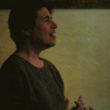Craft in the real world: rethinking fiction writing and workshopping
Description
More Details
Similar Titles From NoveList
Similar Authors From NoveList
Published Reviews
Kirkus Book Review
A fresh view of teaching craft to writers of diverse backgrounds. Korean-born novelist and essayist Salesses, who teaches Asian American literature as well as creative writing, offers a thoughtful analysis of the teaching of craft in colleges and writing programs. "Craft," he observes, "is the history of which kind of stories have typically held power--and for whom--so it also is the history of which stories have typically been omitted." He argues persuasively that the widespread practice of silencing the writer while workshop members critique a piece of writing normalizes White, middle-class, Western values. As an MFA student, he recalls, "I still remember being banned from speaking while mostly white writers discussed my race." This pedagogy conveys to a writer who does not share the reader's race, ethnicity, class, or gender that their story is not worth telling. Those who are silenced learn "that in order to speak they must speak with an acceptable voice" and that their story "must be framed so that the majority can read via their own lens." Salesses offers a detailed overview of the main points covered in writing workshops--including tone, plot, conflict, character arc, setting, pacing, and structure--which generally use realist fiction by White male writers as models. These stories "present the world as a matter of free will. The problems are caused by the self and can be solved by the development of the self. And somehow both external and internal conflict is like this." Salesses counters that view with an illuminating chapter on East Asian and Asian American fiction, where he points to 10 ways that Chinese fiction is different from Western tradition, and he offers an innovative syllabus and exercises. "It is effectively a kind of colonization," he writes astutely, "to assume that we all write for the same audience or that we should do so if we want our fiction to sell." An insightful guide for readers, writers, and instructors from all walks of life. Copyright (c) Kirkus Reviews, used with permission.






























